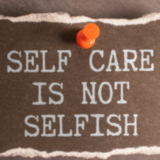Ever had a moment when you’re so enraged you feel like you’ll explode?
I was watching the news recently, and something made me furious. It flicked a switch in me, and I wanted to throw my glass at the wall. Such an OTT soap opera moment ?. Fortunately for my wall and my glass, I didn’t follow through. But it was a close call.
Many of us are angry at the moment. We may put on a happy face, but it’s simmering just below the surface. And it only takes a tiny thing to release it, leading us to do or say something impulsive we’ll regret later.
Where’s this anger coming from?
The last 18 months have been exhausting. We’ve been living with constant stress, anxiety and frustration. And there’s no end in sight yet. This has had a significant impact on our mental health. And one of the ways this can manifest is as anger.
What’s changed?
Last year we were all in it together – sort of.
But now, it seems like it’s every person for themselves. Us against them. State vs state. Community vs community. Politicians who can’t work together, constantly fighting ?.
We’re so over everything that we’re losing empathy and tolerance for others.
So it only takes something minor to make you lose it ? ? – someone cutting you off in traffic, unsolicited text messages from MPs, another appointment/event/freedom cancelled because we’re STILL in lockdown, or just stubbing your toe against the bedside table – ARGH ?!
And when it happens, we often take it out on those least deserving of it. Our loved ones who’re in the wrong place at the wrong time, or the retail/hospo worker just doing their job.
Apart from the negative impact our anger has on ourselves and those around us, being angry all the time, or not addressing this anger, affects our physical health. It can cause high blood pressure, headaches, anxiety, depression, insomnia and digestive issues. It also makes us unhappy, and no one wants that. So here are some tips to help you manage your anger before you have an OTT soap opera moment.
13 tips for managing anger
1.Breathe
Pause and take some calming breaths. If you can, close your eyes and focus on your breathing. Slowly take a deep breath. Fill your lungs to a capacity that’s comfortable for you. Then slowly release this breath. Don’t release it in a sudden exhale, but control it so it’s slow and smooth. Continue to take slow, even breaths…in and out. You’ll feel your muscles start to relax, and your mind will begin to calm.
2. Step away from the situation or put away your phone.
Our reactions when we’re angry can be out of character, and we can regret our actions once we’ve calmed down. So if you can, physically remove yourself from the space until you calm down. And put away your phone. Text messages or phone calls made in anger are the worst. And you can’t take them back.
3. Acknowledge how you’re feeling
Don’t suck it up. It’s okay to not feel okay. When you’ve had a chance to calm down, examine why the situation/person/event made you angry. Was it a rational response? Or was it an overreaction? Think about other ways you could handle the situation if something similar occurs.
4. Write it down
This can be really cathartic. Write down how you’re feeling in a journal or on a piece of paper. This lets you get it out and then reflect on your feelings, which can help you understand why you react in a particular way. It can also help you get a better handle on your emotions.
5. Then let it go
In the end, holding on to anger only makes us and those close to us unhappy.
6. Be kind to yourself
Use simple strategies to reduce stress; try exercising, talking with a friend, meditating, making a cup of tea, doing something creative. Whatever relaxes you, do it! It’ll help you put your stress and anger behind you and make you feel more energised and positive.
7. Be kind to others
Nothing makes you feel better than being kind to others…letting someone in front of you at the checkout, holding the elevator, complementing a colleague on their work, thanking the delivery person, hugging your kids. These small acts of kindness are easy to do and go a long way to making us all feel better and less angry.
8. Create a daily routine to increase feelings of control
A regular daily routine gives you control in a time when so much is out of our control. Separate work and non-work time. Prioritise your connections with others, healthy eating, sleep and exercise. Have a work/school week routine and a weekend routine.
9. Focus on what you can do, not what you can’t
At the moment, many of us can’t visit our friends and family. We can’t travel or have a meal in a restaurant. We can’t celebrate together. And that all sucks. But we can call our friends and family. We can travel through books, virtual tours, revisit past travels and plan future trips. We can send cards, presents and tokens to celebrate milestones and occasions. It’s not the same, but it is still doing something. So focus on the things you can do.
10. Agree to disagree
Don’t let your differences affect your relationships with others. We’re all feeling heightened emotions, and we’ve all got our opinions. A lot has been thrown at us in the last 18 months! But if there’s tension or anger when discussing certain viewpoints, agree to disagree, and move on.
11. Monitor your social media use and limit your news intake
Too much media can increase feelings of frustration and anger. It certainly did for me! So I now skim through the paper once a day, and instead of watching the evening news, I’m watching old episodes of Friends (it’s on all the time ?). With this routine, I’m in control. I’m aware of what’s happening in the world, I’m avoiding the most sensational stuff, and I’m enjoying spending quality time with old friends ?. I’m also limiting my time on socials and spending the time doing other things that are more enjoyable and relaxing.
12. Be careful with drugs and alcohol
While it might seem like an easy way to unwind when you’re stressed or angry, drugs and alcohol won’t solve the issues that make you angry. So just be careful here. It’s an easy habit to fall into and a hard habit to break.
13. Seek help from a professional if your anger becomes overwhelming or feels unmanageable
Talk to your doctor about how you’re feeling and ask them for help.
Anger is an important emotion, but if you start to feel it more and more, it can be detrimental to your health and wellbeing. So next time you start to get worked up, try these strategies to get you through. It’ll take practice, but it’s worth the effort.
For every minute you remain angry, you give up sixty seconds of peace of mind. Ralph Waldo Emerson
Contact our free national Help Line
If you have questions about managing your pain, your musculoskeletal condition, treatment options, mental health issues, COVID-19, telehealth, or accessing services be sure to call our nurses. They’re available weekdays between 9am-5pm on 1800 263 265; email (helpline@msk.org.au) or via Messenger.
More to explore
- Anger – how it affects people
Better Health Channel - Anger – tips to resolve arguments
Better Health Channel - Anger management: Your questions answered
Mayo Clinic, March 2020 - Coronavirus (COVID-19): Managing your anger & distress (PDF)
Relationships Australia (WA) - COVID-19 parenting when we get angry (PDF)
World Health Organization, June 2020 - How I’m dealing with coronavirus lockdown rage
ABC Everyday, September 2021 - How to deal with the anger you feel over people ignoring COVID-19
HuffPost, January 2021 - The effects of poorly managed anger
Verywell Mind, March 2021











